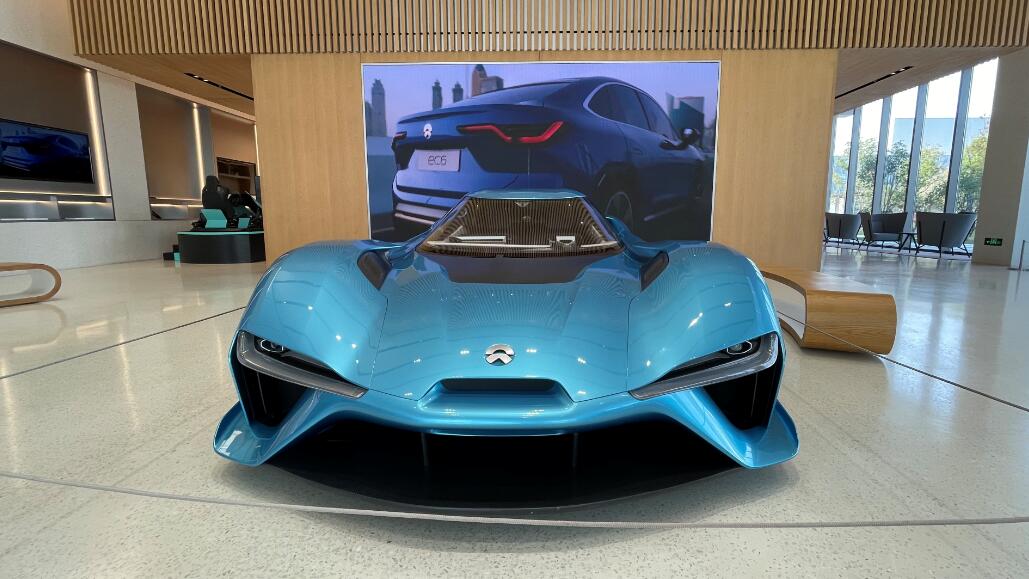Chinese EV trio - Nio, Xpeng Motors, and Li Auto have made the leap from 0 to 1 and have distinctive brand characteristics, and are now evolving rapidly on the intelligent track, an analyst said.
In a report released on Tuesday, Wang De'an, an auto industry analyst at Ping An Securities, said that the next new product plans of these three car companies basically continue their original brand positioning.
All of them have made a big leap in self-driving hardware and software specifications, with their next new models equipped with sensing hardware systems including LiDAR and high-calculus chips, Wang said.
They have become the vane of China's auto intelligence track, and next need to face the problem of production reaching 100,000 and the match of the pace of investment and financing, and more intense competition, the analyst said.
The analyst noted that 55% of Nio's new car orders as of the end of February 2021 are based on BaaS (Battery as a Service), and Nio is accelerating the replacement of oil cars with EV through rechargeable, exchangeable, and upgradeable replenishment options. And Nio's PILOT penetration, on the other hand, is at 50%.
October 2020 Xpeng upgrades the second generation of the intelligent cockpit via OTA, including the industry's first full-cabin cloud system developed in-house to support users with human-vehicle cloud interactions, with daily usage of the cloud system exceeding 90% since 2021.
At the end of January 2021, Xpeng launched Navigation Guided Pilot (NGP), a full-stack self-researched XPILOT 3.0 OTA version, and NGP has been activated on 20% of P7s as of the end of February.
Since the end of February, NGP has assisted users in driving 1.3 million kilometers, with a mileage penetration rate of more than 50% (i.e., the number of the current NGP mileage divided by the available NGP mileage exceeds 50%), and Xpeng will continue to optimize the algorithm by training with user data.
The company plans to release more new versions of XPILOT 3.0, including memory parking, to enhance existing NGP capabilities. The company expects 80% of users in the third all-new model to purchase the Xpilot self-driving software.
Li Auto has undergone 13 major vehicle upgrades since going on sale in December 2019.
On December 26, 2020, the OTA 2.0 adds 12 key features (including ground vehicle warning, camera, and entertainment features) and 12 additional enhancements, including touchscreen, navigation maps, and other applications.
As of February 18, 2021, Li Auto's users have covered 328 cities and over 330 million km.
The new vehicle is ET7, which features luxury sensing hardware + high-calculus chip configuration, a 150-degree battery pack option with a 1,000km range, and monthly payment for assisted driving.
Xpeng plans to market a third brand new car in the fourth quarter, an A+ class intelligent pure electric sedan with Livox vehicle-grade LiDAR (as an aid to visual perception). It supports the third-generation smart cockpit and XPILOT version 3.5 and will likely be the world's first mass-produced smart car with LiDAR.
In addition, deliveries of the mid-life variant of the G3 will begin by the end of the third quarter of 2021, and lithium iron phosphate versions of the G3 and P7 will be announced in April 2021 (20% of the P7 is lithium iron phosphate and 10% of the G3 is lithium iron phosphate, based on orders in hand).
The fourth new model of Xpeng will be launched in 2022, equipped with XPILOT 4.0 software and hardware platform.
Li Auto will still have only one model, Li ONE, available for sale in 2021. It is expected that at least two new models will be delivered each year starting in 2022, and pure electric products will be delivered to customers starting in 2023 relying on the two high-voltage pure electric platforms of Whale/Shark, with product prices achieving full coverage of the RMB 150,000 ($23,070)-RMB 500,000 price range.
Chinese EV trio is evolving very fast on the smart track, the analyst said, adding that as the number of users they keep and the number of miles they cover increases, they will gain valuable data to improve their algorithms.
At the same time, they can also quickly update the smart cockpit and smart driving version, thus further improving the user's smart experience, the analyst said.
But the analyst mentioned that cars are durable consumer goods with high unit prices and long replacement cycles, which means they are far less convenient to replace than mobile phones, and traditional car companies have a window of time to make the digital transformation.
China's new car makers will need to face the challenges of rising mass production and fierce competition in the electric vehicle market, as well as the risk of high R&D investment and a mismatch in financing pace, the analyst cautioned.
(Source: CnEVPost)
Become A CnEVPost Member
Become a member of CnEVPost for an ad-free reading experience and support us in producing more quality content.
Already a member? Sign in here.

